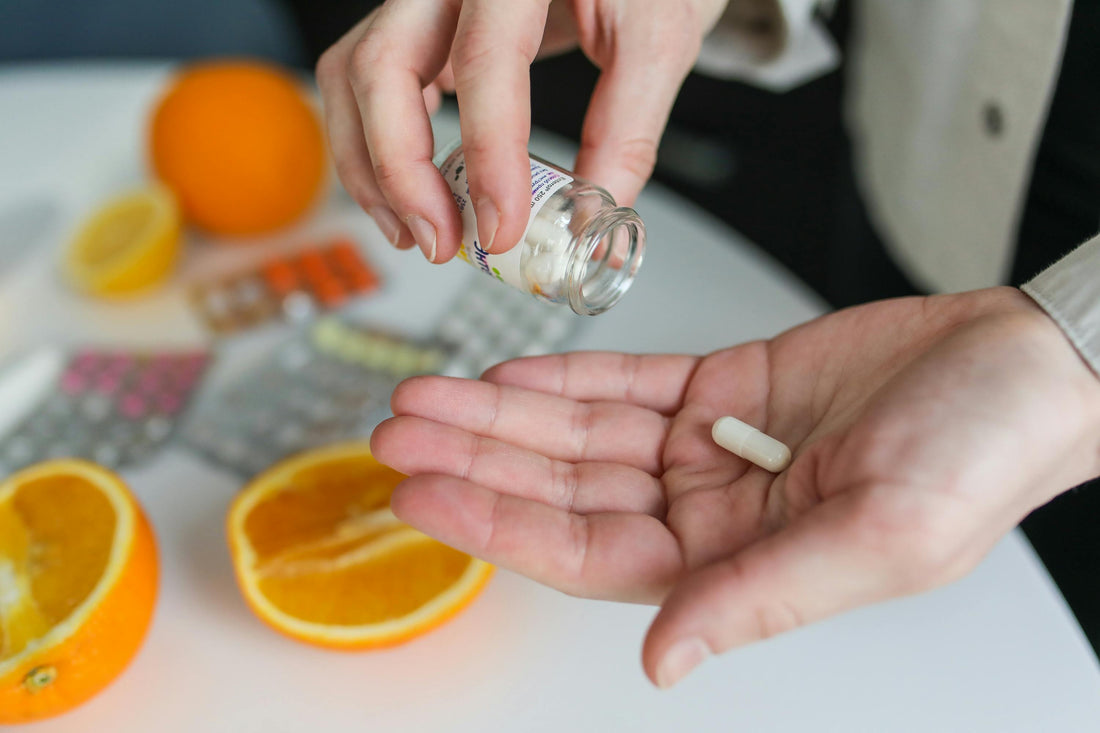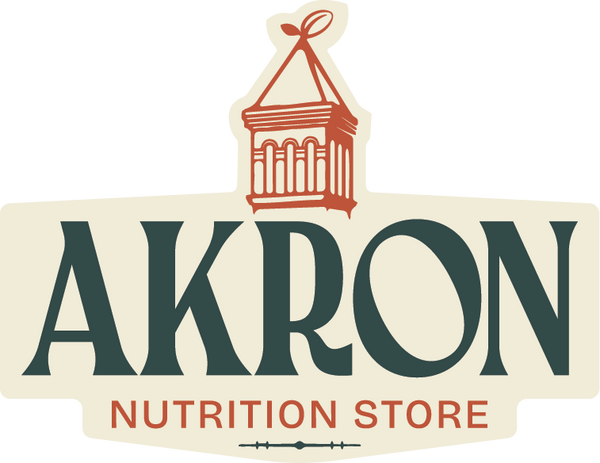
Supplement Certification Seals: The Ultimate Cheat Sheet
Share
Key Takeaways
Why choose certified dietary supplements? Unlike prescription medications, dietary supplements aren’t FDA-regulated. Third-party certification programs like NSF International and USP Verified test for safety, purity, and label accuracy, helping you avoid risky products.
How to spot a real certification seal? Some companies use fake seals to mislead consumers. Look for trusted certifications from NSF International, USP, or Consumer Reports, and verify them. Avoid supplements with vague ingredient lists or unverifiable claims.
Watch out for shady manufacturers. Be cautious of supplements promising instant results, using vague terms like “proprietary blend,” or displaying fake certification seals. Always check independent sources before buying.
You’re standing in front of a wall of dietary supplements (or just looking for them online), each one promising different health benefits. But there's a catch — unlike prescription meds, supplements are not approved by the Food and Drug Administration (FDA) before they reach the market.
Really. The FDA has nothing to do with most supplements, so you're responsible for choosing trusted brands and reliable vendors. And we don't have to explain just how badly this can end: that's where third-party certification programs come in.
Some seals carry extra weight, like the NSF Certified for Sport label, but we'll get into that later. For now, you should know that buying certified supplements is a must if you want to avoid shady products. But what do these organizations actually do to test them?
What’s Actually Getting Tested in Dietary Supplements?
All third-party certification programs are different. Some focus on filtering out substances that could get an athlete banned from competition, while others are more concerned with ensuring the contents match the ingredient list.
The NSF/ANSI 173-2021 standard is the only international standard for third-party supplement testing, but different organizations have their own specific checklists. Here’s a quick breakdown of the biggest supplement testers:
NSF International: NSF mainly deals with sports supplements, checking for banned substances and verifying label accuracy. They're the most well-known third-party certification organization.
Consumer Reports: While they don't focus on any one thing, they're a generally trusted information source for everything supplement-related. They're highly transparent and have a great reputation.
USP Verified Mark: They're the kings of supplements and medications in the US. They publish many standards and update them yearly. They mainly check that the production of the supplement meets FDA sanitary standards that would otherwise only apply to medications.
National Association of Nutrition Professionals: Go-to place for nutrition professionals.
Choosing a Certified Dietary Supplement Professional’s Recommended Products
Relying on a store clerk’s recommendation is more of a gamble than anything else. Why would you gamble here when you're taking supplements precisely to improve your health? Also, some companies say they're certified when they're not, or use fake supplement certification seals that mean absolutely nothing.
So, what should you do to maximize your safety?
Scan the label for a certification from NSF International, USP, or Consumer Reports.
Avoid anything with ingredients listed on the DoD Prohibited Dietary Supplement Ingredients List. That's the list that the military uses to recommend supplements to its members. We'd trust it!
If you’re an athlete, use the OPSS Scorecard to minimize risk and avoid a supplement that could make you fail a drug test.
Shady Signs That Scream ‘Stay Away’
As we mentioned before, some supplement manufacturers will absolutely scam you if given the chance. Now, obviously, if a product promises instant weight loss or more muscle in a week, you should be sceptical. And if a manufacturer doesn’t even bother to clearly list its ingredients? Instant hard pass.
Here are some things to watch out for:
The product has been recalled, but it’s still available online or in stores.
The certification seal isn't real.
The company claims their supplement is a “miracle cure” for health issues.
The ingredient list includes vague terms like “proprietary blend” without specific components.
When in doubt, a quick google search to see if any independent organizations have raised concerns can save you from wasting money.
Why Certified Supplements Are Worth It
There’s a reason why pro athletes and entire sports leagues (NFL, NBA, PGA) swear by certified dietary supplements. The United States Anti-Doping Agency (USADA) only recognizes one certification program: NSF's 'Certified for Sport', which reduces risk for professional athletes.
Certified products go through independent testing for purity, getting official nods and offering peace of mind for consumers. They also help reduce the abundance of bad marketing practices in the industry.
If you want to better your supplement lineup, are an athlete, or just want some trusted advice, go see a certified dietary supplement professional. With the right credentials and a deep understanding of quality assurance and safety standards, a certified dietary supplement professional will guide you better than anyone else.
Buy Smart, Stay Safe, Enjoy Your Health
Why take chances with dietary supplements or risk your health? With so many mislabeled or unverified supplements on the market, choosing third-party tested products is crucial. That’s why we prioritize NSF certified products, transparent ingredient sourcing, and rigorous quality control.
At Akron Nutrition, we believe you deserve nothing but the best dietary supplements. That's why we place so much emphasis on NSF certified products (and why we wrote this article for you!).
Whether you're a certified dietary supplement professional or just someone who cares about their health, shopping from a reputable vendor is a must.
